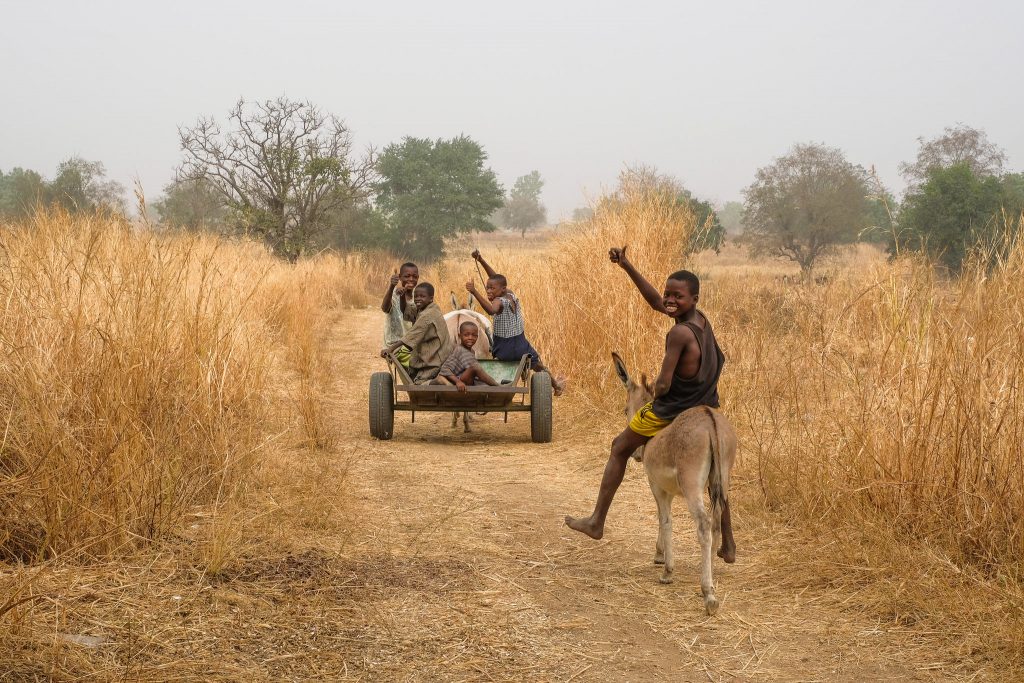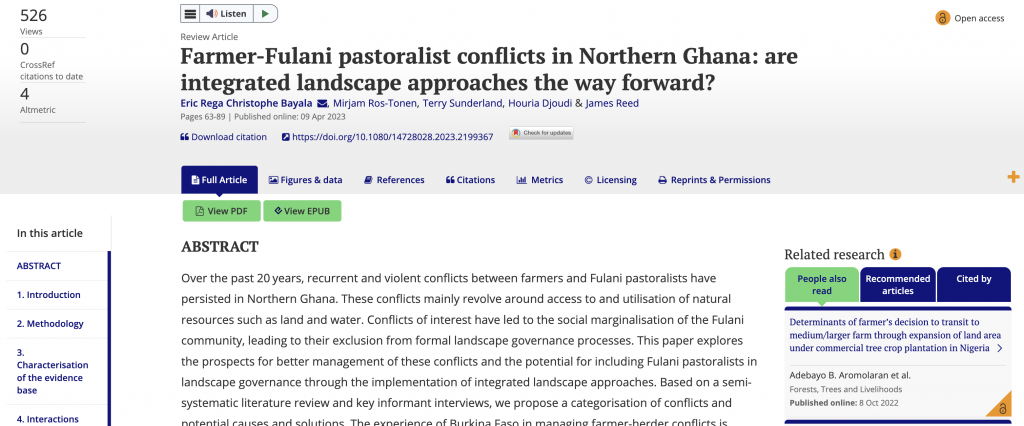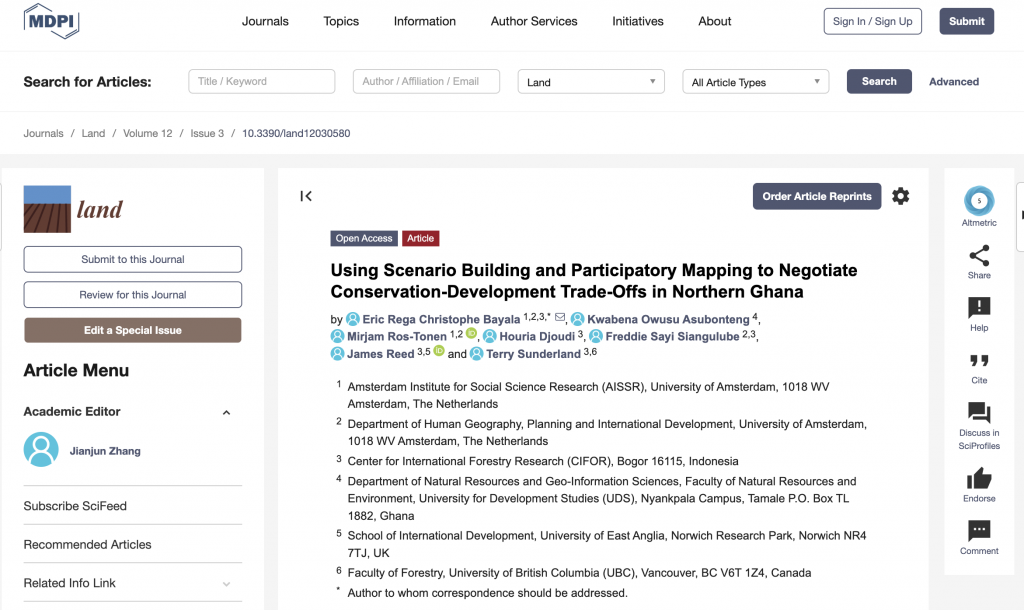
Photo by Axel Fassio/CIFOR
These engagement processes enabled stakeholders to reflect on their contributions and the historical and contemporary challenges obstructing landscape resilience and sustainability. Despite the contested nature of land and natural resource use, stakeholders were able to agree on specific issues of common concern and an idealized shared vision of a future landscape… We expect that the theory of change model and recommendations within can inform the development of a sustainable landscape management plan and future evidence-based policy.
Reed et Al.
The Western Wildlife Corridor (WWC) in Ghana’s Northern Savannah ecological zone is a contested landscape where efforts to reverse widespread environmental degradation often conflict with local livelihood concerns and broader development objectives. Despite policy measures to devolve natural resource decision-making authority, poor environmental management, persistent socioeconomic challenges, and increasingly limited livelihood op- portunities for people living within the corridor prevail. This study investigates environmental degradation in the WWC and natural resource governance using information on stakeholder perceptions from stakeholder work- shops, focus group discussions, and key informant interviews. We also explore how natural resource management might be strengthened to better deliver social, economic, and environmental goals. We found that despite a history of contestation, stakeholders were able to agree upon specific issues of common concern and generate a collaborative vision for the WWC landscape. Transitioning toward such a vision requires significant investment in strengthening current governance structures and building natural resource management capacity within the corridor and beyond. Furthermore, persistent challenges of conflicting stakeholder objectives and issues related to coordination, corruption, and non-inclusion in decision-making about natural resources must be addressed to advance progress. Stakeholders were able to formulate specific recommendations and a participatory theory of change to inform the development of a sustainable landscape management plan and future evidence-based policy that could steer the WWC toward a more resilient and multifunctional system that equitably supports livelihoods, biodiversity, and wider economic development. The methods for inclusive engagement in environmental decision-making are extrapolatable to other contexts facing similar social-environmental challenges.
Moreover, sector-specific discussions and group negotiations helped formulate concrete short-, mid-, and long-term objectives and specific actions, interventions, and a suite of potential solutions to current barriers that combined could help to reorient and transform the governance and management of the WWC. These recommendations enabled us to generate a working theory of change for the WWC landscape that will be shared and validated with a broader group of stakeholders, including those not present at the workshops.
Reed et al.





